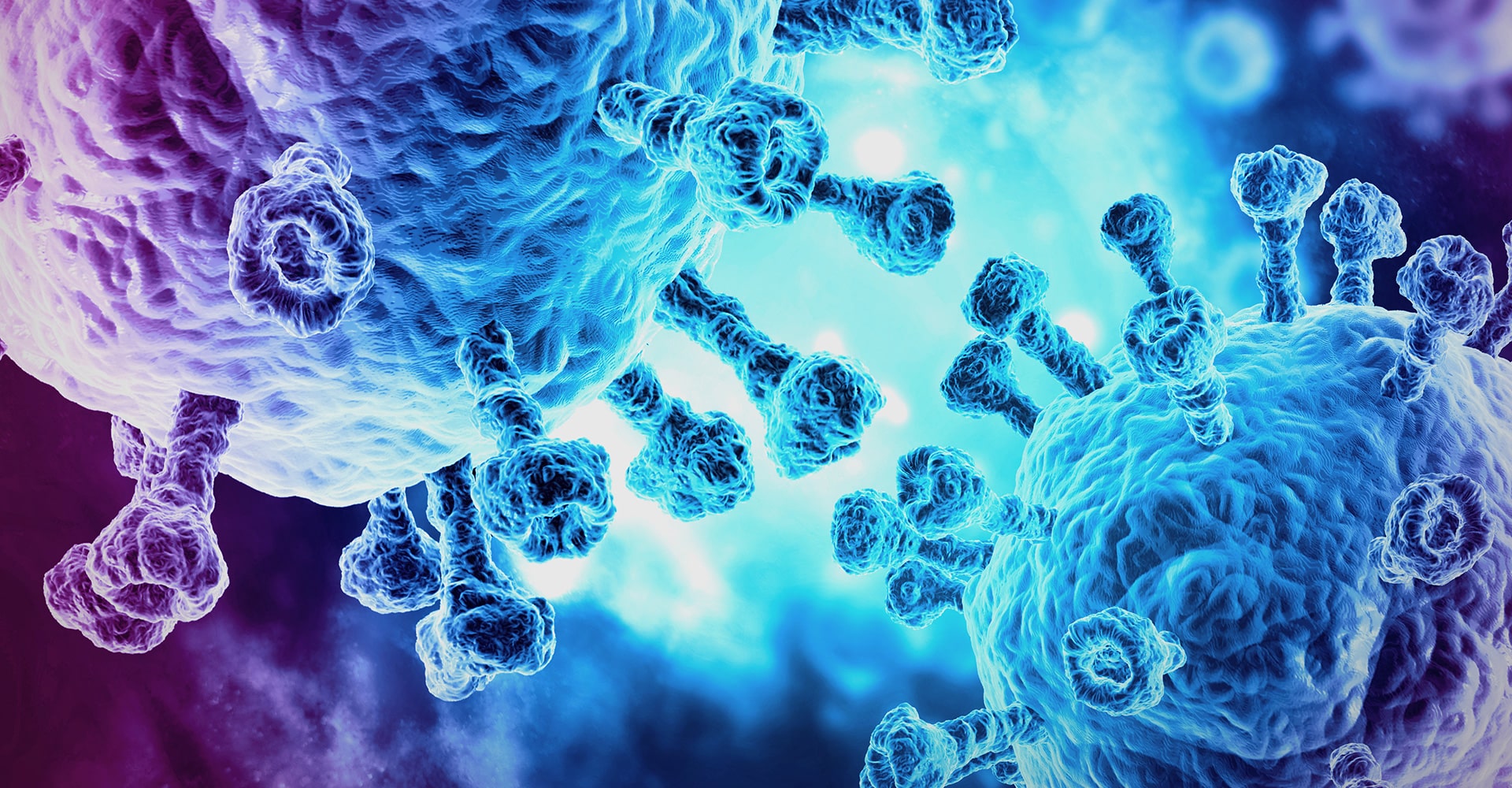Drug repurposing, or repositioning, is a technique whereby existing drugs are used to treat emerging and challenging diseases, including COVID-19.
In September 2020, a team of the University of Chicago led by Professor Savas Tay of the Pritzker School of Molecular Engineering, published the results of a preclinical study analyzing more than 1,900 drugs with proven safety in humans and the ability to inhibit the replication of OC43, a human betacoronavirus responsible for the common cold in humans and related to the SARS-CoV-2 virus1.
Of these drugs, the 26 most effective have been shown to completely inhibit SARS-CoV-2 and 20 of them, including masitinib, significantly inhibited OC43 and SARS-CoV-2 coronaviruses replication.
In particular, the study demonstrated the ability of masitinib to specifically inhibit another essential enzyme responsible for the replication of the virus: 3CLpro, the main protease of SARS-CoV-2. To date, masitinib is the only antiviral treatment in the world that specifically targets this protein.
In January 2021, an independent study from the Institute of Human Virology (Guangzhou, China) confirmed the masitinib anti-viral activity against the SARS-CoV-2 in vitro2.
Finally, masitinib has anti-inflammatory activity that may be effective against lung damage related to the body’s response to the virus3. Therefore, masitinib could act on all phases of the disease, both as an antiviral at the onset of infection and as an anti-inflammatory.

